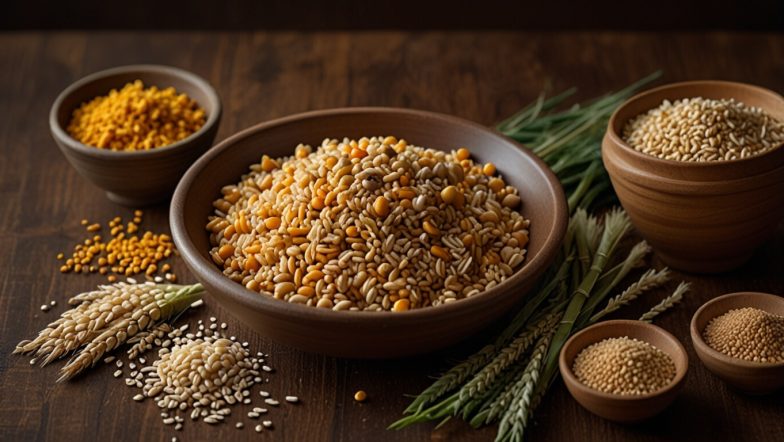Nigerian cuisine is a vibrant tapestry of flavors, influenced by centuries of history and cultural diversity. From the bustling markets to the cozy family kitchens, this blog post will take you on a journey that explores the captivating evolution of Nigerian cuisine, shedding light on its transition from farm to table.
Historical Roots of Nigerian Cuisine
- Traditional Ingredients and Dishes
Traditional Nigerian dishes like jollof rice, pounded yam, and egusi soup form the cornerstone of the country’s culinary identity. These dishes are rooted in historical practices, with recipes passed down through generations.
- Influence of Ethnic Diversity
Nigeria’s ethnic diversity plays a significant role in shaping its cuisine. Different regions boast unique ingredients and preparation methods, offering a glimpse into the country’s rich cultural tapestry.
Changes Over Time
- Urbanization and Shifts in Eating Habits
As urbanization sweeps across Nigeria, traditional eating habits have evolved. Fast-paced lifestyles have led to changes in meal preferences, with a rising demand for convenience and international dishes.
- Fusion of Nigerian and International Flavors
Globalization has introduced Nigerian palates to international flavors. This has led to exciting fusions, where traditional recipes are infused with foreign influences, creating a dynamic culinary landscape.
Farm-to-Table Movement in Nigeria
- Embracing Locally Sourced Ingredients
In recent years, the farm-to-table movement has gained momentum in Nigeria. Chefs and home cooks alike are embracing locally sourced, fresh ingredients, reconnecting with the authenticity of their produce.
- Supporting Local Farmers and Communities
By prioritising locally grown ingredients, Nigerians are enhancing the quality of their meals and supporting local farmers and communities, fostering sustainable growth.
- Culinary Tourism and Nigerian Cuisine
Explore Nigeria through its cuisine. Culinary tourism embraces the nation’s flavors, showcasing its regions, ingredients, and unique culinary stories.
Balancing Tradition and Innovation
- Preserving Culinary Heritage
While modernity sweeps in, Nigerians are actively preserving their culinary heritage. Traditional cooking techniques, age-old recipes, and storytelling through food play a crucial role in this preservation.
- Experimenting with Contemporary Techniques
Amidst the celebration of tradition, there’s also room for culinary experimentation. Nigerian chefs are blending traditional ingredients with contemporary techniques, creating dishes that pay homage to the past while embracing the future.
The Role of Nigerian Cuisine in Celebrations
- From Family Gatherings to Festivals
Food unites Nigerians in celebration. Family gatherings and festivals are adorned with traditional feasts, reflecting unity and shared heritage.
- Traditional Foods for Special Occasions
Mark special moments with special dishes. Learn how Nigerian cuisine takes center stage during weddings, birthdays, and cultural festivities, adding flavor to every memory.
A Flavorful Future
- Nurturing Nigerian Culinary Traditions
The journey of Nigerian cuisine continues. By nurturing culinary traditions, we ensure that the flavors of the past continue to shape the future, connecting generations.
- Anticipating Culinary Trends
As Nigerian cuisine evolves, it embraces new trends while preserving its essence. Anticipate exciting culinary innovations that will further enrich this vibrant tapestry.
Conclusion
Nigerian cuisine, a masterpiece painted by time, culture, and innovation, bridges the gap between the past and the future. From farm to table, its evolution narrates a tale of resilience, flavor, and the enduring spirit of a nation







Leave a comment